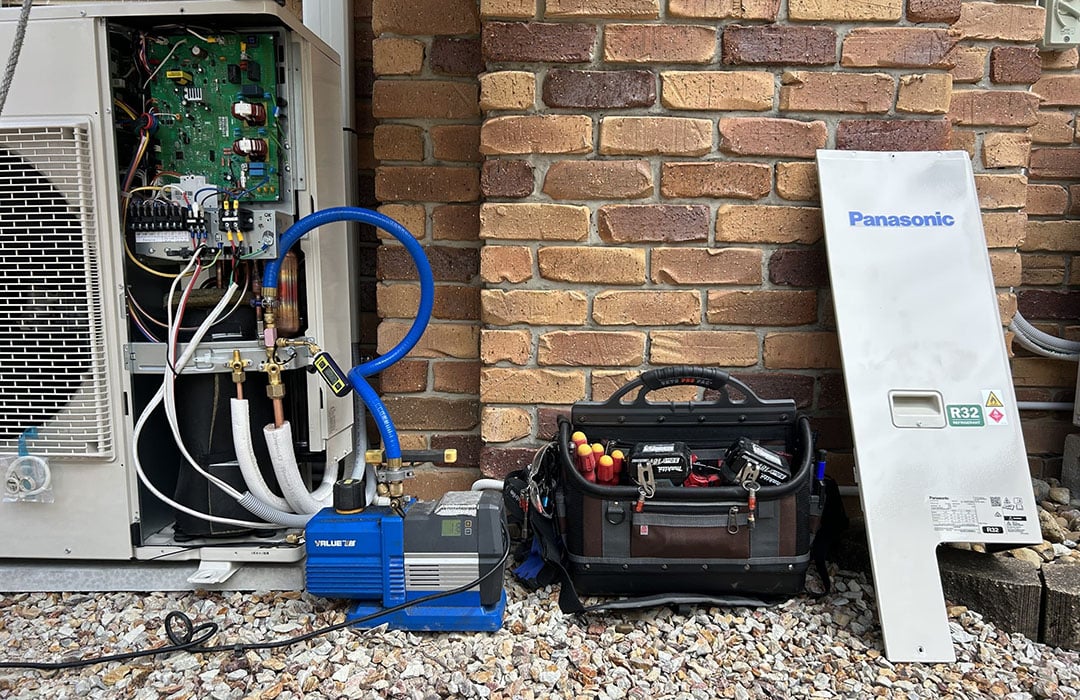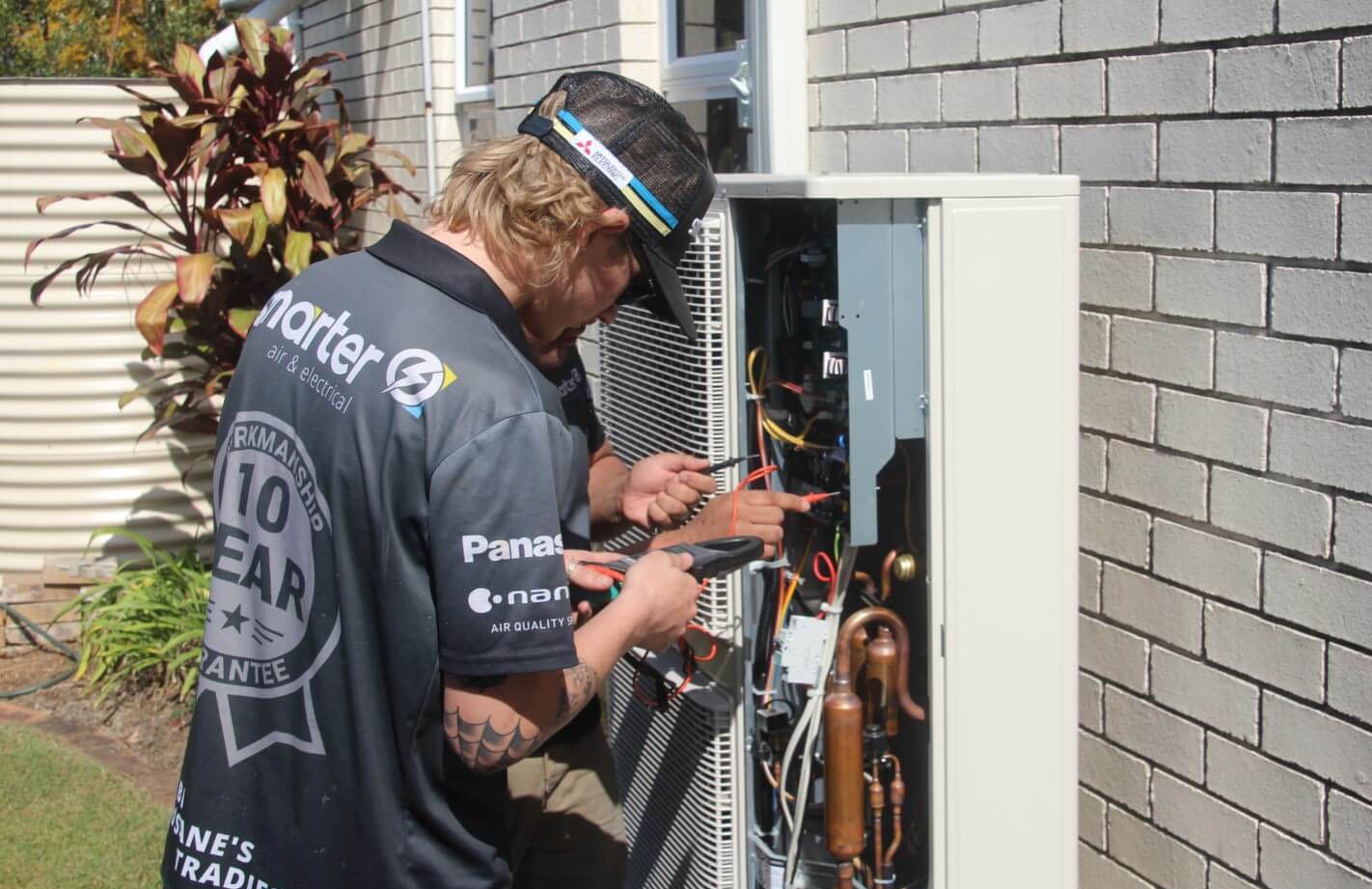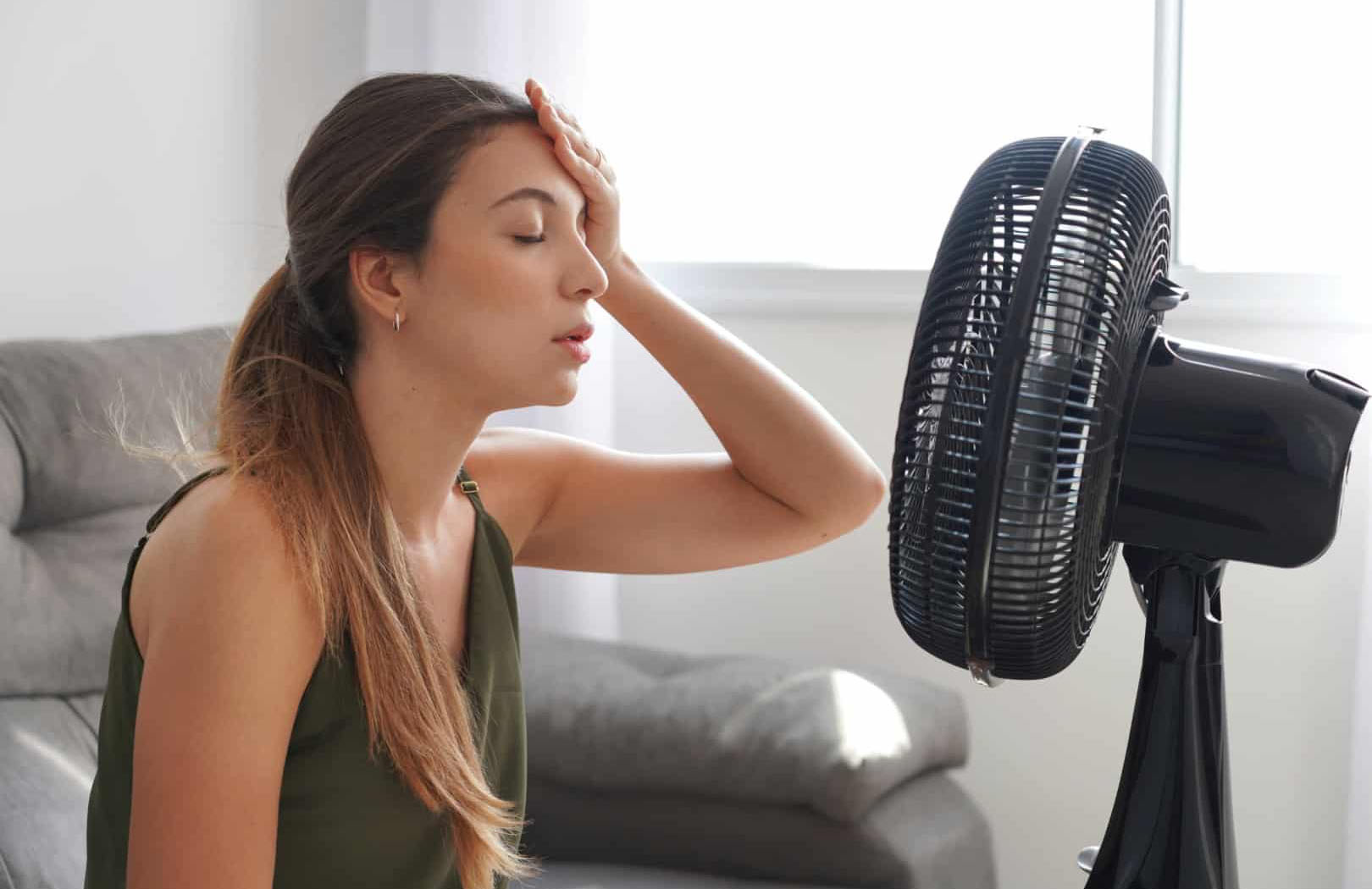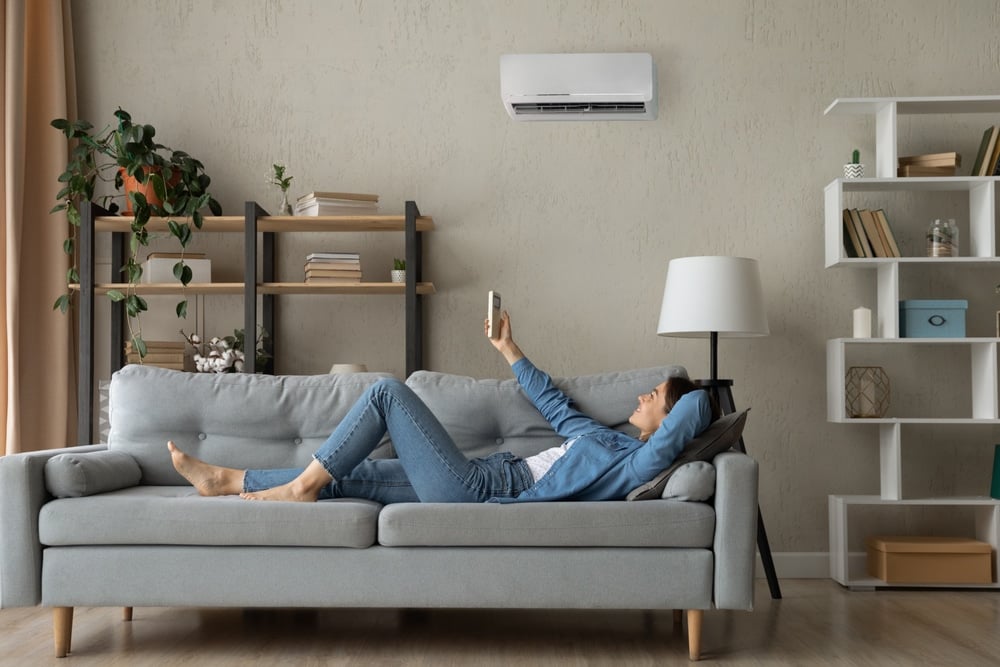Choosing the Right Size Heat Pump for Your Pool
Did you know Australia boasts the highest per capita pool ownership in the world? There’s no denying that us Aussies love a good dip! So, why save it just for summer? With an electric pool heat pump, you can enjoy the comfort of a perfectly heated pool all year round, even on those cooler days. Plus, electric pool heat pumps are often more economical to run than traditional gas pool heaters, making them a cost-effective solution for extended swimming seasons.
However, choosing the right electric pool heat pump size is key to ensuring efficiency, comfort, and cost-effectiveness. At Smarter Air and Electrical, we offer a range of affordable electric pool heat pumps to help you get the most out of your swimming pool. In this article, we guide you through selecting the right pool heat pump size, so you can enjoy swimming season all year long!
Why the Right Swimming Pool Heat Pump Size Matters
Choosing the right size pool heat pump for your swimming pool matters because it affects both your comfort while swimming and the efficiency of the heat pump. Electric heat pumps work by pulling warmth from the air and transferring it to the pool water, maintaining it at a steady, comfortable temperature for swimming. The effectiveness of this process, however, largely comes down to selecting the correctly sized heat pump in relation to your pool size.
If you choose an electric heat pump that’s too small for your pool, maintaining an ideal temperature will be a challenge, especially on those colder days or evenings. It’ll result in your heat pump needing to work far harder, increasing energy consumption and resulting in scary electricity bills. It goes without saying that it’ll also reduce your overall pool usage because of the less-than-optimal water temperature.
On the flip side, an electric pool heater pump that’s oversized can come with its own set of issues. Sure, it may heat the pool water fast, but not without the excessive upfront costs that just aren’t necessary. Additionally, a pool heat pump that’s too big for your swimming pool is likely to cycle on and off more regularly, which can lead to potential wear and tear over time, cause the pool water temperature to fluctuate, and reduce the overall efficiency of the pool heating system.
Key Factors to Consider When Choosing a Heat Pump Size
Choosing the right pool heat pump for your swimming pool goes beyond selecting the one that ticks the aesthetic and budget boxes. There’s a range of pool heat pump sizes to choose from, and several important factors to consider to ensure you select a size that’ll maintain your desired swimming temperature effectively and efficiently. Here are the key considerations:
Pool Size and Volume
Your pool’s volume directly affects the capacity of the heat pump you’ll need. Larger pools need more energy to heat, requiring pool heat pumps with sufficient capacity for the job. A good starting point is to calculate the volume of your pool. You can get an estimate by using this simple formula: length x width x average depth. Think of it as your pool heater size calculator!
Once you know the rough volume of your pool, you can figure out the amount of heating power needed to sustain a comfortable pool water temperature.
Climate and Desired Temperature Rise
When selecting the right pool heater size, it’s a good idea to consider how much warmer you want your pool compared to the surrounding air temperature. In doing this, you need to think about the climate of your region. In Brisbane’s subtropical climate, for example, a small temperature boost might be all you need to enjoy jumping in the pool year-round. Cooler regions, such as Melbourne, may require a more powerful pool heat pump to reach a similar level of comfort.
Wind Exposure and Pool Location
Wind can play a big role in how much heat your pool loses, especially if it doesn’t have a pool cover on it and is in an area in which it’s exposed to the elements. For example, if you have a coastal pool or a pool in an elevated location, you might need a more powerful pool heat pump to compensate for the heat loss caused by wind exposure. On the other hand, if your pool is situated in an area that offers more protection from the elements, it’ll hold heat better and potentially require a less powerful pool heater to generate a similar temperature result as an exposed pool with a larger heat pump.
Pool Usage
When accurately sizing pool heaters, it’s essential to consider your pool usage: how often and during what times of the year you intend to use your pool. If you plan to use your pool throughout all the seasons, investing in a more robust pool heat pump can help maintain a consistent water temperature all year round. If you plan on using your pool seasonally, you can likely opt for a smaller, more economical pool heat pump.
The Benefits of Professional Pool Heat Pump Sizing and Installation
As you can see, choosing the right heat pump for your pool goes beyond simply picking a model off the shelf. It requires a deep understanding of local conditions and an accurate assessment of your pool size and location.
To get the most out of your pool heat pump, it’s an excellent idea to consult with professionals to ensure it meets your comfort needs and operates at peak efficiency. An experienced technician can take all the considerations into account to recommend the best heat pump size and model for your specific pool, location, and pool heating requirements.
Professional pool heat pump installation goes hand-in-hand with proper sizing. A skilled installer with a proven track record can set up your new pool pump properly, optimising performance and reducing the likelihood of issues down the track, providing you with reliable and satisfying swimming conditions for many years to come.
Top Tips for Optimal Pool Heating
Once you’ve chosen the right pool heat pump and had it installed, you can make the most out of it by following a few best practices. Below, you can find our top tips for helping you maintain efficiency, reduce operating costs, and extend the life of your heat pump:
- Use a pool cover: A pool cover is a simple, yet effective way to minimise heat loss, especially in Australia’s cooler regions or if your pool is exposed to the elements. A pool cover works by keeping the heat in and reducing evaporation, maintaining your pool’s temperature and reducing the work your pool heat pump has to do.
- Routine maintenance: Pool heat pumps require regular maintenance for sustained efficiency and performance. Pool heat pump maintenance can include cleaning the filters, checking for any wear and tear, and booking in scheduled professional servicing to catch any issues early on.
- Set it to a moderate temperature: For the most efficient operation, consider setting your pool pump heater to a moderate temperature rather than the highest possible setting. You may also consider running the heat pump during off-peak electricity hours to help reduce electricity costs. For example, off-peak hours in Brisbane are daily from 9:00 PM to 7:00 AM.
Brisbane Pool Heat Pumps
With pool heat pumps, it’s clear to see that getting the sizing right is a game changer when it comes to extending your swimming season and reducing your electricity bills. With the right choice of heat pump, you can ensure your swimming pool remains at an ideal temperature and is ready to hop into, no matter what time of year it is. Opting for professional sizing and installation is a great way to make sure you get the most out of your investment.
If you’re keen to level-up your pool experience, our expert team at Smarter Air and Electrical are here to guide you every step of the way. We offer advice tailored to your specific needs, a range of top quality electric pool heaters to suit any pool size and climate, and professional installation. Get in touch with us today for advice you can rely on and a free quote.












